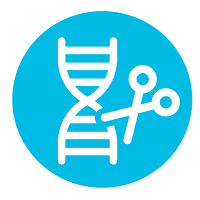Advances in Discovery, Formulation, and Delivery of New Modalities
Symposium: AI/ML in Drug Discovery and Development
ML Enhanced DLS for Rapid Characterization of mAb Aggregation
Thursday, May 16, 2024
9:30 AM - 10:00 AM PT
Location: Yosemite BC

Anurag S. Rathore, Ph.D.
Professor
Indian Insitute of Technology Delhi
New Delhi, Delhi, India
Speaker(s)
Aggregation of monoclonal antibody therapeutics is a serious concern that is believed to impact product safety and efficacy. There is a need for analytical approaches that enable rapid estimation of mAb aggregates. Dynamic Light scattering (DLS) is a well-established technique for estimating the average size of protein aggregates or for evaluating sample stability. It is usually used to measure the size and size distribution over a wide range of nano- to micro-sized particles using time-dependent fluctuations in the intensity of scattered light arising from the Brownian motion of particles. In this study, we present a novel DLS based approach that allows us to quantify the relative percentage of multimers (monomer, dimer, trimer, and tetramer) in a monoclonal antibody (mAb) therapeutic product. The proposed approach uses machine learning (ML) algorithm and regression to model the system and predict the amount of relevant species such as monomer, dimer, trimer, and tetramer of a mAb in the size range 10 nm-100 nm. The proposed DLS-ML technique compares favorably to all potential alternatives with respect to the key method attributes, including per sample cost of analysis, per sample time of data acquisition along with ML based aggregate prediction ( < 2 minutes), sample requirements ( < 3 micrograms), and user-friendliness of analysis. The proposed rapid method can serve as an orthogonal tool to size exclusion chromatography which is the current industry workhorse for aggregate assessment.
Learning Objectives:
- Upon completion, participant will be able to gain a basic understanding of how machine learning tools can enhance established analytical tools like DLS
- Upon completion, participant will be able to get more information about the product from routine DLS analysis
- Upon completion, participant will be able to build similar applications for their routine analysis

